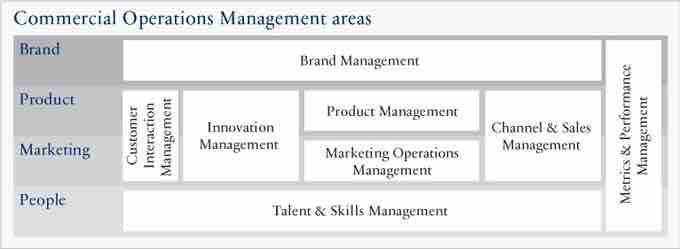What is Operations Management?
Operations management is the management of processes that transform inputs into goods and services that add value for the customer.
The Goal of Operations Management
The goal of operations management is to maximize efficiency while producing goods and services that effectively fulfill customer needs.
Countless operating decisions must be made that have both long- and short-term impacts on the organization's ability to produce goods and services that provide added value to customers. If the organization has made mostly good operating decisions in designing and executing its transformation system to meet the needs of customers, its prospects for long-term survival are greatly enhanced.
For example, if an organization makes furniture, some of the operations management decisions involve the following:
- purchasing wood and fabric,
- hiring and training workers,
- location and layout of the furniture factory,
- purchase cutting tools and other fabrication equipment.
If the organization makes good operations decisions, it will be able to produce affordable, functional, and attractive furniture that customers will purchase at a price that will earn profits for the company.
The Role of Operations Management in the Organization
Operations is one of the three strategic functions of any organization. This means that it is a vital part of accomplishing the organization's strategy and ensuring its long-term survival. The other two areas of strategic importance to the organization are marketing and finance. The operations strategy should support the overall organization strategy. Many companies prepare a 5-year pro-forma to assist in their operation planning. The pro forma uses information from past and current financial statements in an effort to predict future events such as sales, and capital investments.
Strategic Versus Tactical Operations Decisions
Operations decisions include decisions that are strategic in nature, meaning that they have long-term consequences and often involve a great deal of expense and resource commitments.
Strategic operations decisions include the following:
- facility location decisions,
- the type of technologies that the organization will use,
- determining how labor and equipment are organized,
- how much long-term capacity the organization will provide to meet customer demand.
Tactical operations decisions have short to medium term impact on the organization, often involve less commitment of resources, and can be changed more easily than strategic decisions. The following are some tactical decisions:
- workforce scheduling,
- establishing quality assurance procedures,
- contracting with vendors,
- managing inventory.
Strategic and tactical operations decisions determine how well the organization can accomplish its goals. They also provide opportunities for the organization to achieve unique competitive advantages that attract and keep customers.
For example, United Parcel Service (UPS), an international package delivery service, formed a partnership with its customer, Toshiba computers. Toshiba needs to provide a repair service to its laptop computer customers. The old approach of providing this service was cumbersome and time-consuming:
- UPS picked up the customer computers.
- UPS delivered the computers to Toshiba.
- Toshiba repaired the computers.
- UPS picked up the repaired computers and delivered them back to the customers.
Under this traditional approach, the total time to get a laptop computer repaired was two weeks—a long time for people to be without their laptop! Then they came up with an innovative idea for Toshiba to provide better service to its customers.
UPS hired, trained, and certified its own employees to repair Toshiba laptop computers. The new repair process is much more efficient:
- UPS picks up computers from Toshiba owners.
- UPS repairs the computers.
- UPS delivers the computers back to their owners.
The total time to get a computer repaired is now about two days.
Most Toshiba customers think that Toshiba is doing a great job of repairing their computers, when in fact Toshiba never touches the computers! The result of this operations innovation is better service to Toshiba customers and a strong and profitable strategic partnership between UPS and its customer, Toshiba.

Operations Management
Blueprint for a commercial operations management solution.